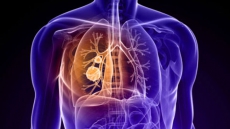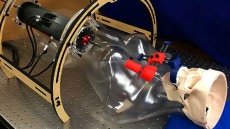TORONTO — A new study says women with early stage breast cancer are getting unneeded follow-up imaging tests that are clogging up the health-care system and wasting millions of dollars.
Guidelines say that women diagnosed with Stage 1 or Stage 2 breast cancer don't need additional MRIs or CT scans because the risk that their cancer has spread is very low.
The study found despite that, most women diagnosed with early stage breast cancer had additional tests — in fact, they had almost four apiece.
Senior author Dr. Mark Clemons says these extra tests expose women to potentially harmful radiation and can delay the start of their care.
And Clemons says giving these women tests they don't need delays access to CT scans and MRIs for people who do need this type of medical imaging.
The study is based on data from Ontario and is published in this week's Canadian Medical Association Journal.
"I think the bottom line really is that this massive provincial data set tells us that the system has gone astray and now is the time to really help enhance patient care," says Clemons, who is with the Ottawa Hospital.
Clemons says the research team cannot tell from the data why women are getting so many tests against the advice of the practice guidelines. He says the group is currently conducting a study in which they are talking to women and doctors to try to uncover what is behind the decisions.





